Do you want to produce your own music? What are the most important aspects to produce good music? Surely you have ever wondered how your favorite artists make their songs.
Music production can be a lot of work at first: Learn music theory; learning how to make a DAW works, learning how to build your favorite genre, etc… But it can also be one of the most rewarding feelings in the world. If you’re just starting out, don’t be overwhelmed by the workload, equipment cost, or initial learning curve. Like everything, music production requires time to become familiar with all the processes and procedures.
Tip: Here we compare 12 of the most popular DAWs Take a look. This will be interesting for you if you are just starting out with music production.
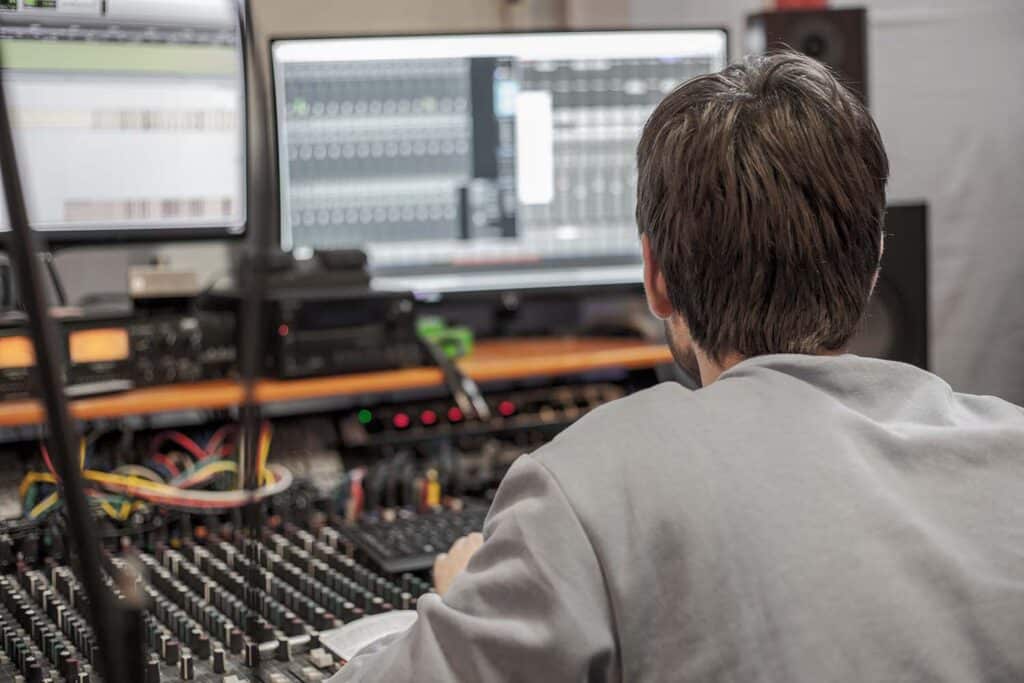
Before we talk about the equipment you need, we are going to explain the 5 beliefs that every aspiring music producer should have:
- Trust your ears, but always mix with multiple sound systems. Proper equalization of your tracks will make a bigger difference to your music production than any plugin or VST.
- Your musical projects are not a race: each song you produce must be something that really matters to you.
- Experiment: Don’t limit yourself to a certain sound or genre, especially if it’s a sound that mimics a currently popular sound. Chasing trends will always limit your creativity. The truly innovative artist is someone who doesn’t care about trends.
- Don’t spend your entire paycheck on hardware and software. It’s incredibly tempting to scour the internet for the perfect plugin or pattern to finish a project in progress.
- Instead, focus on developing the ability to create the sounds you want with the tools you have. The same rule applies to hardware. When I first started producing music, I spent hundreds of dollars on various MIDI devices, controllers, and keyboards. If I had focused on really improving my production skills, it would have been much more effective (and cheaper).
- Challenge yourself every day when you make music. Every little step forward is important. No matter how long it takes you to learn a new skill or make a certain sound, push yourself to keep going. As long as you spend a little time each day learning something new about the tools you already have, you won’t have wasted your time.
So… how do I make my music? With the tips above in mind, it’s easy to overlook the production side of the team. There is no doubt that talent and promotional and marketing efforts are very important in music production, but quality equipment is essential.
You know you shouldn’t keep changing components. That is why it is important to have the right one from the beginning. Although everyone has their own preferences, some programs and equipment have become the industry standard for new growers.
These 5 tools are the equipment you need to produce music.
DAW (Digital Audio Workstation)
What is a DAW? A DAW (Digital Audio Workstation) is a software application for editing, recording, and creating audio files.
DAWs are considered the basis for being able to produce music: Without them, we would have to record on tape. There are currently dozens of DAWs, each with its own features.
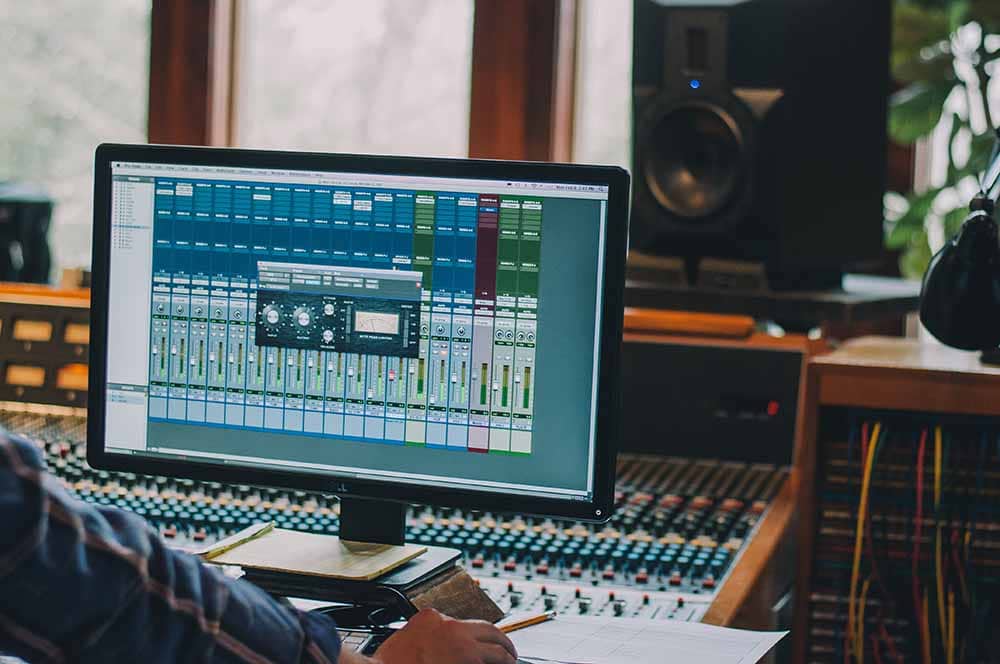
However, some common features are present in almost all options. Multi-track recording, pitch/tempo shifting, and filtering are important features found throughout the market.
Why do you need one? If you want to make a cake, you need a mold. The same concept applies to DAWs. If you want to produce music (digitally), you need a DAW.
There are alternatives, such as analog recording to tape, but these options are prohibitively expensive and require vast amounts of talent to take advantage of.
What are the good options? For new music producers, Ableton or Logic Pro are two of the best options, depending on what you want to achieve with your sound.
Logic has much deeper editing capabilities and can edit large sessions (eg 100+ tracks) much more efficiently than Ableton, but it is only limited to Apple computers.
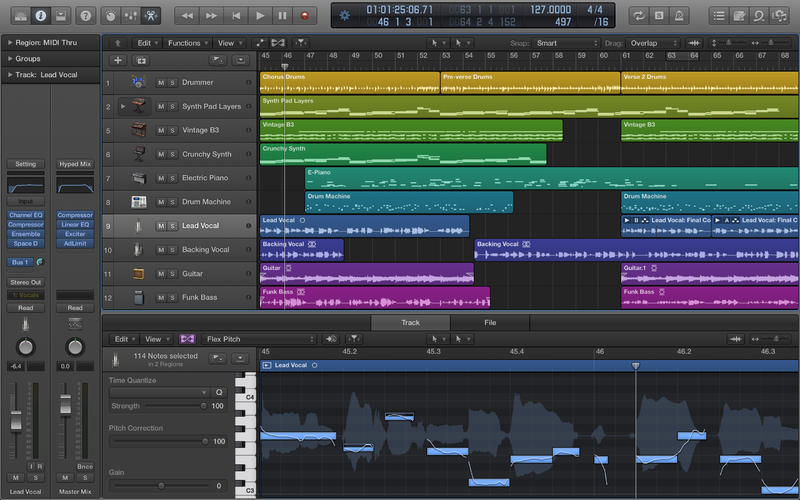
Ableton is much faster for simple compositions and has the advantage of automatically adjusting the tempo between different loops and audio clips, making live performances with a single controller extremely convenient.
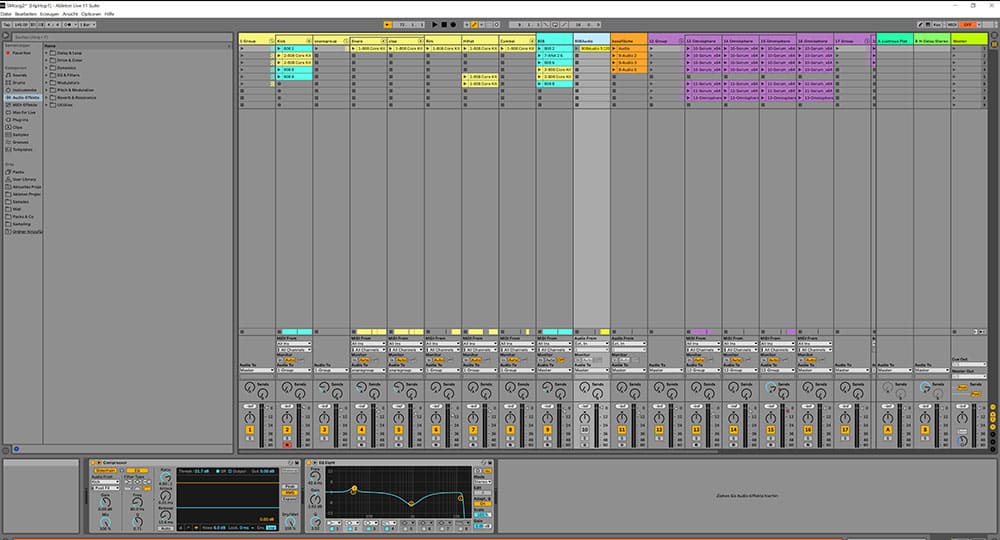
If you want to learn how to produce music quickly and easily, you should give FL Studio a try. The simple user interface makes creating beats and loops incredibly intuitive for new producers.
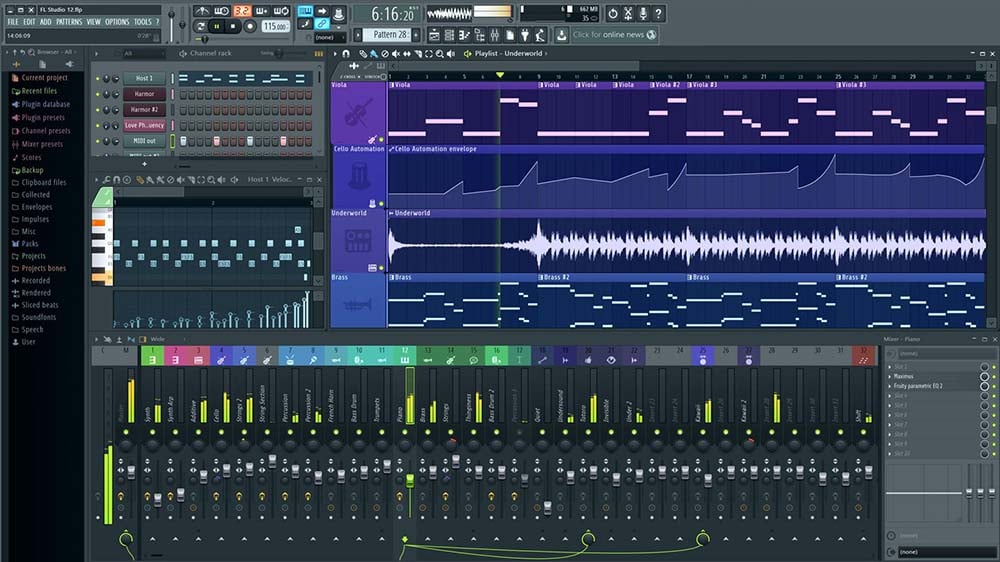
I personally think Ableton Live is great. It’s very easy to learn (compared to, say, Pro Tools) and so comprehensive that you can really do anything with it. Ableton is optimized for music production and has developed an optimal workflow for it.
I use Pro Tools for recording, Ableton for producing/composing, and then Pro Tools again for Mixing and Mastering .
midi-controller
What is it? Almost as important as your DAW is the MIDI controller you use to control it. MIDI, or Musical Instrument Digital Interface, is a universal technical standard that allows communication between physical hardware and the DAW.
One of the most common forms of MIDI controllers are keyboard controllers, which mimic the look and feel of a traditional piano keyboard.
While keyboards are essential for producers who already know how to play them, grid controllers are a much more intuitive and affordable way to organize beats and trigger samples.
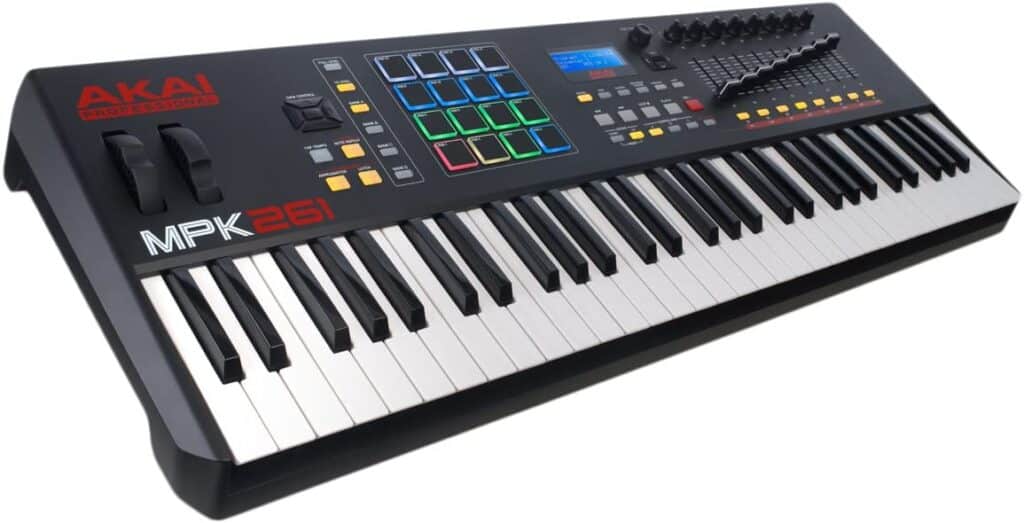
Why you need one: With a grid controller like the Novation Launchpad X, you can precisely sequence drums and perform live, for example with a DAW like Ableton Live.
Given the good value for money, rack controllers like the Launchpad X are a good way to dive into the world of MIDI controllers with no budget hurdles and professional quality.
A pair of studio headphones
What are studio headphones? Studio headphones are headphones designed for professional music production and have special settings to serve this purpose.
Studio headphones differ from consumer and gaming headphones by their completely neutral sound balance. Essentially, studio headphones try to deliver as little “colored” sound as possible so that producers can mix their tracks as efficiently as possible.
If you don’t know what your song really sounds like, correcting sonic imperfections in your mix will only make it worse.
Why you need it: There are two ways to listen to your projects as you create them: Monitors and Headphones.
For new producers, headphones are the best option. Studio monitors need good room acoustics to sound reasonable, which is not the case for most amateur music producers. Also, noisy monitors will always disturb all the neighbors, which can quickly lead to trouble.
This means that headphones are still the first choice for new producers.
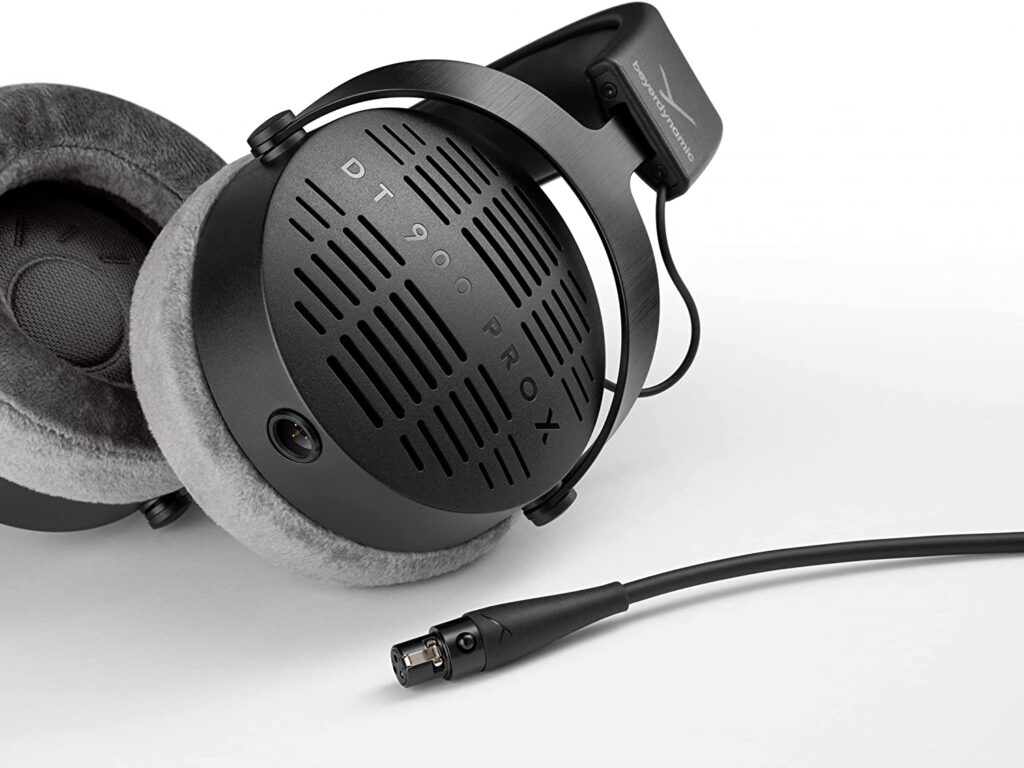
What are the good options? Two important things to keep in mind are to avoid Bluetooth headphones and not to go for “trendy” brands like Beats by Dre. For the rest, I can recommend the DT-900 Pro X from Beyerdynamic or the DT-990 only recommend.
An audio interface (external sound card)
What is it? Non-MIDI instruments, like guitars or vocals, don’t have the universal connectivity of their counterparts. An audio interface is there to solve this problem.
The simplest way to think of an external sound card is that it is the bridge between traditional analog and digital audio. An audio interface almost always includes a microphone preamp. This allows you to record microphones or instruments by amplifying the sound, converting it digitally, and recording it in your DAW.
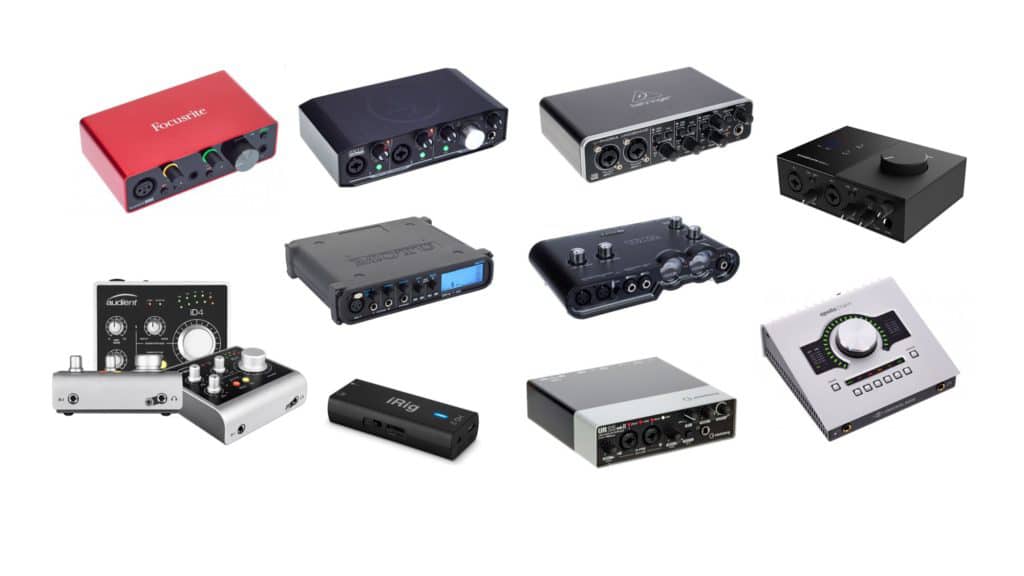
For example, if you want to record a guitar with a 1/4-inch jack and a microphone with XLR connectors, you need a two-channel audio interface to record the audio into your DAW.
Because you need it:
When working with live instruments, a suitable audio interface is needed to translate the analog audio signal into a digital audio file. Depending on your needs, some audio interfaces are more suitable than others.
As a general rule, audio interfaces increase exponentially in price the more tracks you want to record at once. However, companies like Fireface offer audio interfaces that can record more than 30 input channels.
Depending on the type of connection (USB, Thunderbolt, PCIe), the price varies and so does the performance. However, for most applications, a USB audio interface is sufficient. In my studio I use an RME PCIe Audio Interface with 32 channels, and in my home studio a Behringer UMC204 HD .
A microphone for studio recordings
Studio microphones are wired microphones designed for recording audio in a studio setting, such as a recording booth. Typical studio microphones are condenser microphones, which have a clearer sound than dynamic microphones and are designed for music production.
Here we compare 6 of the most popular studio microphones .
Why you need one: If you want to record your voice or an acoustic instrument like guitar, flute, or saxophone, you definitely need a microphone.
There are ten generally recognized types of microphones, with two types making up the majority of the production market.
Condenser microphones use a vibrating diaphragm to generate audio signals and have a flatter frequency response than dynamic microphones, but capture sound evenly. Basically, you have to take background noise into account when choosing a condenser microphone.
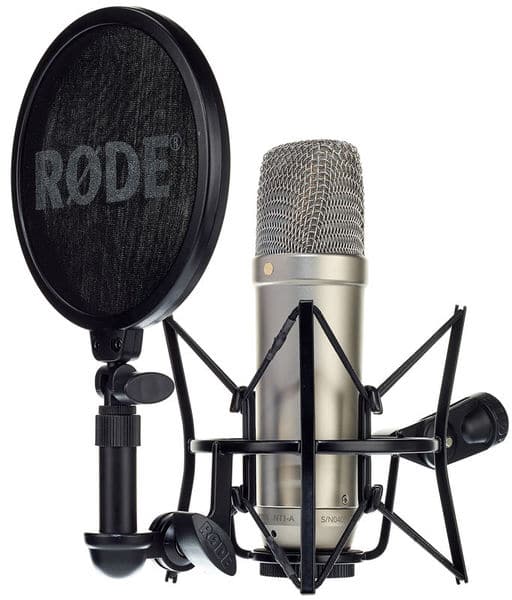
Dynamic microphones work by electromagnetic induction and are usually much cheaper and more robust than condenser microphones. Their durability and price make them ideal for stage performances and recording in noisy environments.
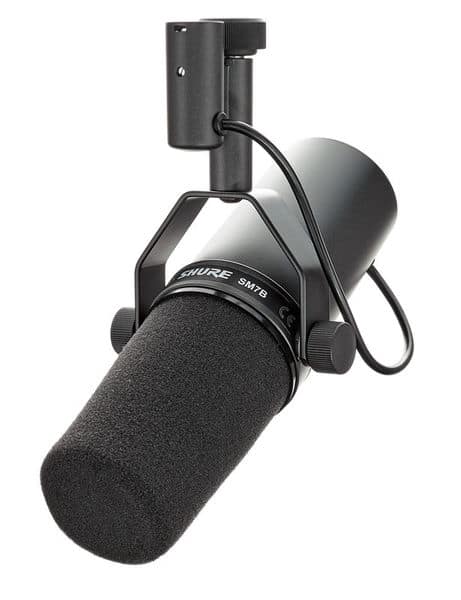


0 Comments